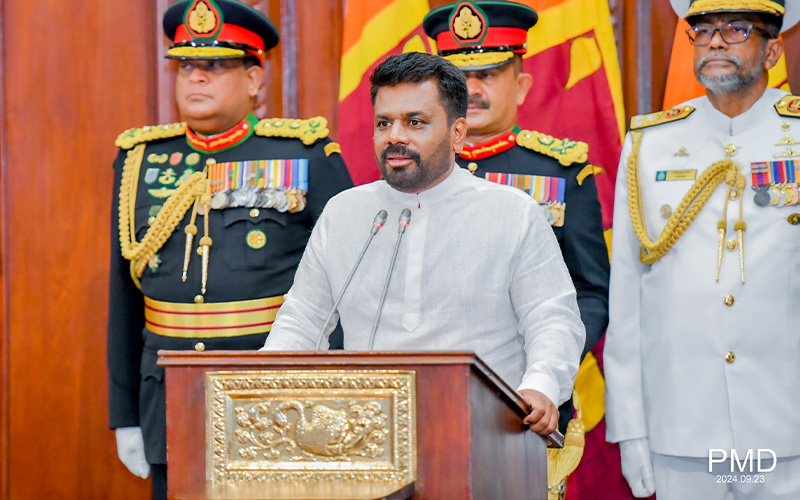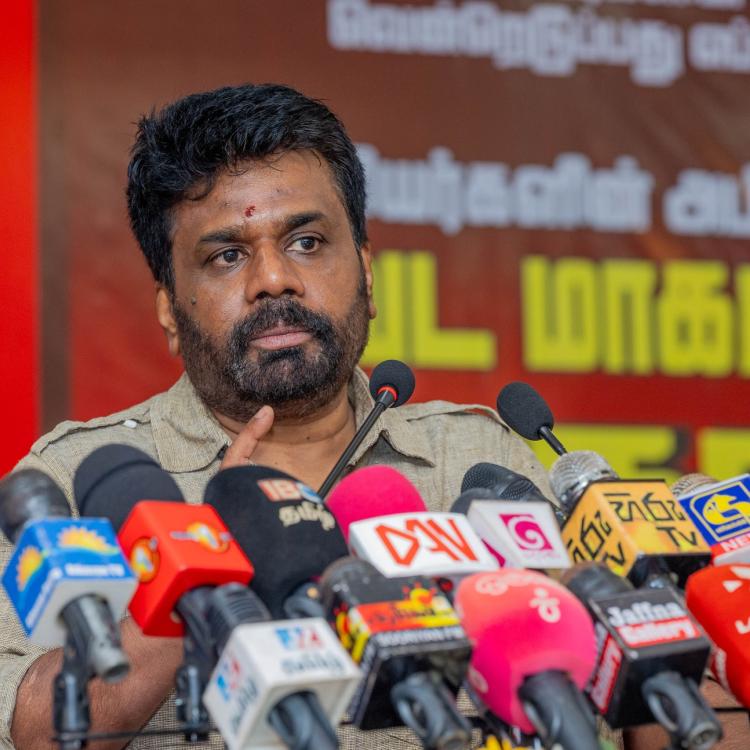
In his inaugural address this week, newly elected Sri Lankan President Anura Kumara Dissanayake pledged to dismantle divisions rooted in race, religion, and ethnicity, despite the fact that Sri Lanka has been deeply divided along these lines for decades. Speaking in a televised address, Dissanayake emphasized that Sri Lanka’s future depends on fostering unity among all its citizens, regardless of whether they identify as Sinhalese, Tamil, Muslim, Burgher, or Malay.
“Our nation will only thrive when we create an environment where every person can proudly say, 'We are Sri Lankan citizens,'” Dissanayake said. “We will not hesitate to implement the necessary constitutional, economic, and political reforms to make this vision a reality.”
The newly elected president announced the launch of a comprehensive program aimed at building a unified nation that respects diversity. He stressed the importance of ending long-standing divisions along ethnic, religious, class, and caste lines, declaring this initiative a cornerstone of his administration. “We are embarking on a permanent journey to forge a unified Sri Lanka," he continued. "An era of division based on race, religion, and other social barriers must end for us to move forward."
One of the key goals of his government, Dissanayake said, is to restore the global reputation of Sri Lanka, ensuring that its citizens can travel abroad with pride and that their passport is respected internationally. He called on every Sri Lankan to play a role in this transformation. “Our vision is to create a nation where citizenship is a source of pride for all,” he affirmed. “But this will require the collective effort of every citizen. I know there may be doubts about our intentions, but I am determined to earn your trust through action.”
Without directly addressing the deep divisions that still exist in the country, particularly in the North-East, where Tamils overwhelmingly supported the Tamil common candidate signaling their quest for autonomy and recognition of atrocities during the armed conflict.
“We are aware of the uncertainties some may have,” he said, speaking directly to skeptics. “But I welcome constructive criticism and encourage everyone to join us in shaping our future. If we can set aside our differences, I believe you will see that we share the same goals.”
His remarks come at a time of profound economic uncertainty and political tension in Sri Lanka. The JVP leader’s ascent to the presidency is seen as a major turning point in the country's history, especially as the nation grapples with ethnic divisions and a struggling economy.
As Dissanayake takes office, Sri Lanka faces enormous challenges—not least the demands for justice and autonomy from the Tamil population in the North-East.

